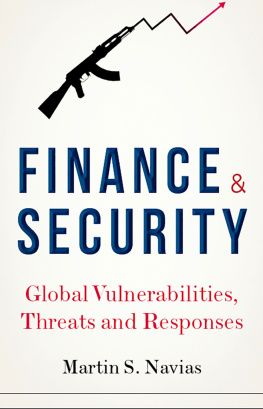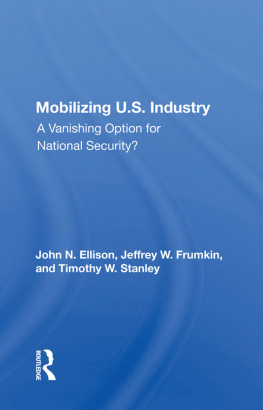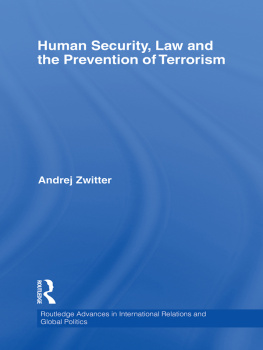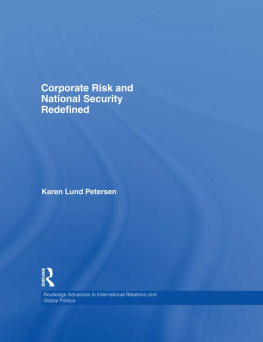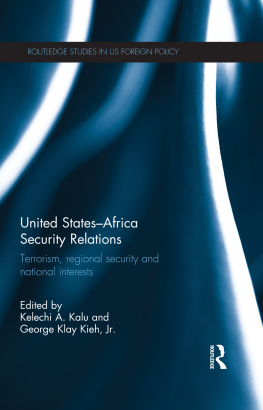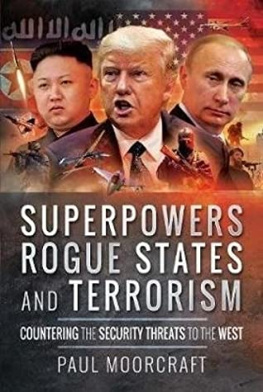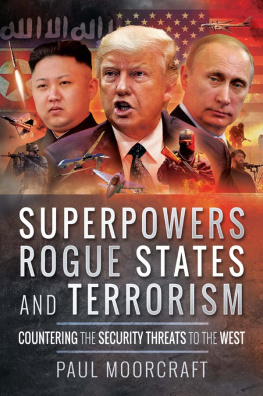A Division of Simon & Schuster, Inc.
FREE PRESS and colophon are trademarks of Simon & Schuster, Inc.
Library of Congress Cataloging-in-Publication data is available.
Upon discovering that Weeki Wachee Springs, his Florida roadside water park, had been included on the Department of Homeland Securitys list of over 80,000 potential terrorist targets, its marketing and promotion manager, John Athanason, turned reflective. I cant imagine bin Laden trying to blow up the mermaids, he mused, but with terrorists, who knows what theyre thinking. I dont want to think like a terrorist, but what if the terrorists try to poison the water at Weeki Wachee Springs?
Whatever his imaginings, however, he went on to report that his enterprise had quickly and creatively risen to the occasionor seized the opportunity. They were working to get a chunk of the counterterrorism funds allocated to the region by the well
endowed, anxiety-provoking, ever-watchful Department of Homeland Security.
Which is the greater threat: terrorism, or our reaction against it? The Weeki Wachee experience illustrates the problem. A threat that is real but likely to prove to be of limited scope has been massively, perhaps even fancifully, inflated to produce widespread and unjustified anxiety. This process has then led to wasteful, even self-parodic expenditures and policy overreactions, ones that not only very often do more harm and cost more money than anything the terrorists have accomplished, but play into their hands.
The way terrorism anxiety has come to envelop the nation is also illustrated by a casual exchange on televisions 60 Minutes. In an interview, filmmaker-provocateur Michael Moore happened to remark, The chances of any of us dying in a terrorist incident is very, very, very small, and his interviewer, Bob Simon, promptly admonished, But no one sees the world like that. Remarkably, both statements are truethe first only a bit more so than the second. It is the thesis of this book that our reaction against terrorism has caused more harm than the threat warrantsnot just to civil liberties, not just to the economy, but even to human lives. And our reaction has often helped the terrorists more than it has hurt them. It is the reactive consequences stemming from Simons perspectiveor from what journalist Mark Bowden has characterized as housewives in Iowawatching TV afraid that al-Qaedas going to charge in their front doorthat generate one of the chief problems presented by terrorism.
International terrorism generally kills a few hundred people a year worldwidenot much more, usually, than the number who drown yearly in bathtubs in the United States. Americans worry intensely about another 9/11, but if one of these were to occur every three months for the next five years, the chance of being killed in one of them is 0.02 percent. Astronomer Alan Harris has calculated that at present rates, the lifetime probability that a resident of the globe will die at the hands of international terrorists is 1 in 80,000, about the same likelihood that one would die over the same interval from the impact on the earth of an especially ill-directed asteroid or comet.
Figure 1: Concerns about terrorism, 2001-2006
How worried are you that you or someone in your family will become a victim of terrorism? Very worried, somewhat worried, not too worried, or not worried at all? (CNN/ USA Today /Gallup) Percent very worried or somewhat worried.
How likely do you think it is that there will be another terrorist act in the United States within the next few months: very likely, somewhat likely, not very likely, or not at all likely? (CBS News) Percent not at all likely.

But such numbers are almost never discussed: Moores outburst is exceedingly rare. Instead, most Americans seem to have developed a false sense of insecurity about terrorism. Thus, since 9/11, over a period in which there have been no international terror attacks whatever in the United States and in which an individuals chances of being killed by a terrorist have remained microscopic even if oneor manydid occur, nearly half of the population has continually expressed worry that they or a member of their family will become a victim of terrorism, as Figure 1 shows. Moreover, when asked if they consider another terrorist attack likely in the United States within the next several months, fewer than 10 percent of Americans usually respond with what has proven to be the correct answer: Not at all likely. Yet, this group has not notably increased in size despite continual confirmation of its prescience.
That the costs of terrorism chiefly arise from fear and from overwrought responses holds even for the tragic events of September 11, 2001, which constituted by far the most destructive set of terrorist acts in history and resulted in the deaths of nearly 3,000 people. The economic costs of reaction have been much higher than those inflicted by the terrorists even in that record-shattering episode, and considerably more than 3,000 Americans have died since 9/11 because, out of fear, they drove in cars rather than flew in airplanes, or because they were swept into wars made politically possible by the terrorist events.
Moreover, as terrorist kingpin and devil du jour Osama bin Laden has gleefully noted, fear, alarmism, and overreaction suit the terrorists agenda just fine because they create the damaging consequences the terrorists seek but are unable to perpetrate on their own. As he put it mockingly in a videotaped message in 2004, it is easy for us to provoke and bait. All that we have to do is to send two mujahidintoraise a piece of cloth on which is written al-Qaeda in order to make the generals race there to cause America to suffer human, economic, and political losses. His policy, he extravagantly believes, is one of bleeding America to the point of bankruptcy, and it is one that depends on overreaction by the target: he triumphally points to the fact that the 9/11 terrorist attacks cost al-Qaeda $500,000, while the attack and its aftermath inflicted, he claims, a cost of more than $500 billion on the United States. Shortly after 9/11, he crowed, America is full of fear from its north to its south, from its west ot its east. Thank God for that.
Presenting an Unconventional Conventional Wisdom


